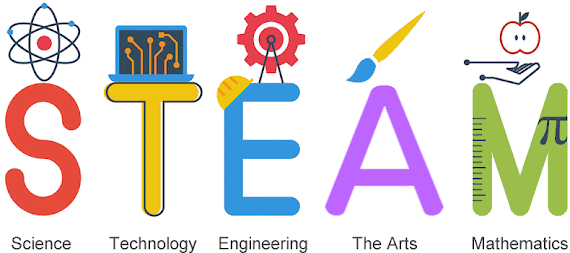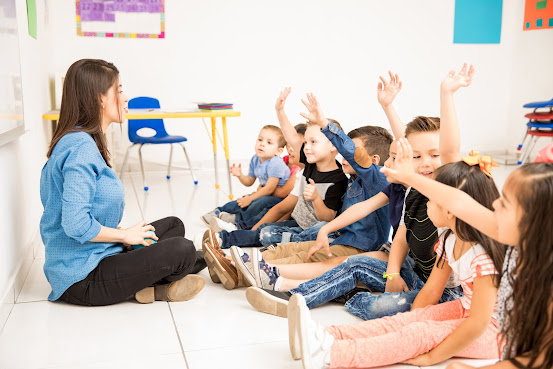The earliest years of a child's life are characterized by rapid brain development and an incredible capacity for learning. The foundation like toddler montessori in surrey laid during these formative years has a profound impact on a toddler's immediate well-being, setting the stage for future health, learning, and behavior. Understanding the complexities of early brain development provides valuable insights into promoting optimal health and well-being in toddlers.
The health and development of a toddler's brain is influenced by many factors, including nutrition, sleep, physical activity, and the quality of their experiences and interactions. By understanding and supporting these critical aspects, we can lay the foundation for each child's future healthy growth, learning, and overall well-being.
Here are the key factors:
1. A Glimpse into Brain Development
By the time a baby is born, their brain contains nearly all the neurons they'll ever have. However, the connections between these neurons, known as synapses, multiply at an astonishing pace during the first few years. In fact, by age three, a child's brain has formed a trillion synapses, twice as many as an adult’s.
2. The Significance of Early Experiences
The "serve and return" contact between children and their caretakers shapes the architecture of the brain. Neural connections are formed and strengthened in the child's brain that assist the growth of communication and social skills when an adult appropriately reacts to an infant or toddler's babble, gestures, or screams with eye contact, words, or a hug.
Negative experiences, like chronic neglect or exposure to violence, can be harmful to brain development. Such stress can activate the body's stress response, and without the buffering presence of a supportive adult, can lead to a condition known as "toxic stress". Over time, toxic stress can impair the connection-building process, leading to lifelong problems in learning, behavior, and overall health.
3. The Role of Nutrition
Proper nutrition during the toddler years is crucial for brain development. Essential nutrients such as iron, zinc, and omega-3 fatty acids play pivotal roles. Iron, for example, is crucial for cognitive, motor, and behavioral development. A deficiency can lead to delays in these areas. Omega-3 fatty acids, particularly DHA, support the development of the cerebral cortex, the part of the brain responsible for memory, language, and creativity.
4. Importance of Sleep
Sleep is more than just a period of rest. In the consolidation of memory and learning, it is crucial. The brain organizes and processes the day's information as you sleep. Toddlers' attention, memory, and emotional regulation can be strengthened by regular naps and a regular bedtime.
5. Physical Activity and Brain Health
Physical activity promotes the development of motor skills and encourages exploration, both of which are fundamental for cognitive development. As toddlers move and interact with their environment, they form new neural connections that support various areas of development, including problem-solving and social interaction.
6. Encouraging a Stimulating Environment
To boost brain development, toddlers should be exposed to a variety of experiences. Simple activities like reading books, playing with blocks, singing songs, and even engaging in imaginative play can significantly stimulate a toddler's brain.
7. Establishing Secure Attachments
Building a strong, trusting relationship with caregivers is crucial for a toddler’s emotional and cognitive health. Secure attachments provide a foundation from which toddlers can explore the world, confident in the knowledge that they can return to a safe base. These attachments foster self-esteem, resilience, and better outcomes in social and cognitive domains later in life.
Importance of brain development of toddlers:
The toddler years, usually between the ages of 1 and 3, represent an incredibly dynamic time in a child's life. During this time, the brain undergoes rapid and extensive development that affects many areas of the child's life. Understanding the importance of this stage is crucial for carers, educators, and policymakers alike.
1. Foundation for Future Learning:
During the toddler years, the brain forms a vast number of synapses or connections between neurons. These synapses are the basis for all future learning and cognition. A strong foundation in these early years ensures that later learning can be built upon a solid base.
2. Development of Core Skills:
Basic skills such as attention, memory, and language comprehension start to flourish during this time. Mastery of these core cognitive skills in the toddler years sets the stage for more complex skill acquisition in later years.
3. Emotional and Social Growth:
As toddlers interact with their environment and caregivers, they begin to understand emotions, develop empathy, and establish their first social relationships. These early experiences shape their future emotional intelligence and ability to form healthy relationships.
4. Formation of Habits and Behaviors:
Brain development during the toddler years is closely tied to the establishment of routines, habits, and behaviors. These patterns, once ingrained, can influence a child’s behaviors and habits well into adulthood.
5. Critical Periods for Sensory Development:
Certain sensory systems, like vision and hearing, have critical periods during which the brain is especially receptive to external stimuli. Optimal development during these periods is vital for normal sensory function.
6. Influence of External Environment:
The plasticity, or adaptability, of a toddler's brain, means it is highly sensitive to the environment. This underscores the importance of providing positive, enriching experiences, as negative ones can have lasting detrimental effects.
7. Resilience and Adaptability:
The high plasticity of the toddler's brain not only means it's sensitive to environmental factors but also that it has a tremendous capacity for recovery. Early interventions for developmental delays or disorders can harness this plasticity, resulting in better outcomes than interventions later in life.
8. Foundation for Moral and Ethical Behavior:
During the toddler years, children start to develop a basic sense of right and wrong. Experiences during this time can influence their moral and ethical compass in the future.
9. Language Acquisition:
While infants begin the process of language acquisition, it’s during the toddler years that vocabulary expands rapidly and grammatical rules are internalization. The foundation for language skills, essential for communication and future academic success, is established during this period.
10. Setting Health Trajectories:
The brain's development is closely intertwined with other systems in the body. Proper brain development can set the course for good physical and mental health throughout life.
Final Thoughts:
Early brain development is a profound and complex process that significantly affects a toddler's health, well-being, and future abilities. The experiences, interactions, and environments preschool in Surrey provide during these formative years lay the foundation for a myriad of cognitive, emotional, and physical outcomes.
ecadema’s aim is to provide a nurturing and stimulating environment where children can learn, play, and develop crucial skills needed for their future schooling. Hence We are focused on holistic development, integrating cognitive, social, emotional, and physical activities into the daily routine.









